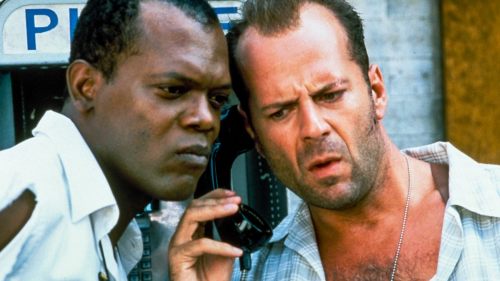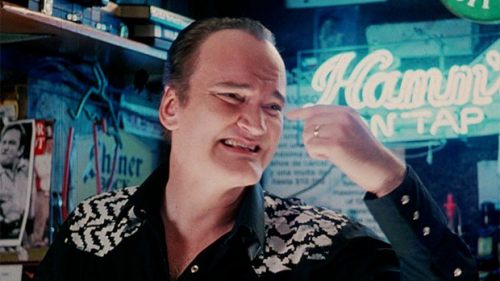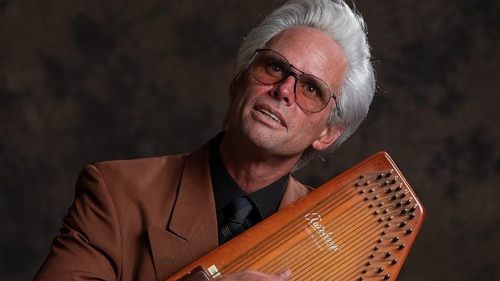THE HATEFUL EIGHT Review: America’s Original Sin As “The Thing”
Quentin Tarantino is not fooling around with the title of his latest film, The Hateful Eight. This movie is about scumbags and murders, racists and sexists, shitty human beings all. Every time you think a character could be heroic he behaves like a monster. Every time you think someone is having a change of heart they’re just getting ready to be heinous - often physically and brutally - to someone else. The Hateful Eight is nihilistic in the extreme, a raging scream of anger at America’s racial problem, a movie that posits we have never gotten over the sins of slavery and that wonders if the only way we can is to find someone else to savagely oppress.
Shot in 70mm in the snowy, gorgeous mountains of Telluride, The Hateful Eight is perhaps Tarantino’s talkiest script since Reservoir Dogs, a similar ‘bottle episode’ type story. We spend some of the first half of the movie immersed in the glory of the outdoors and then almost the entire second half trapped inside a single room with a group of despicable characters who begin to cut each other down, looking for secret enemies and acting on old grudges.
It’s pretty fucking great.
The Hateful Eight feels like Quentin Tarantino’s response to his last two film, Inglorious Basterds and Django Unchained, two movies that were revisionist revenge sagas that saw the historical underdog rise up, righting the wrongs of history. Six million Jews died in the Holocaust and Hitler denied the survivors their satisfaction by killing himself in a bunker - except not in Inglorious Basterds, where Jewish commandos turn him into hamburger meat. After the Civil War too many freed slaves found themselves returned to bondage in all but name, still forced to toil in fields and denied many of their basic rights - except not in Django Unchained, where the plantation itself is blown to pieces, a triumphant fuck you to failures of Reconstruction. But The Hateful Eight is more clear-eyed about American history, and in this film a viciously racist Confederate terrorist finds himself raised to the role of lawman after the Civil War. This is the America of today, Tarantino says - not a world where Django won but one where he’s torn apart by dogs at Candyland. One where Tamir Rice and Freddie Gray and Sandra Bland have their lives casually snuffed out by the police.
Samuel L Jackson is Major Marquis Warren, a black Civil War vet stuck on the side of a snowy road. He flags down a carriage carrying bounty hunter John Ruth (Kurt Russell) and his latest capture, Daisy Domergue (Jennifer Jason Leigh). Ruth is known as the Hangman because he always brings in his quarry to dance at the end of a rope, but that doesn’t stop him from brutalizing his bounty again and again on their trip, beating her, smashing her nose in, berating her. But make no mistake: Domergue is no soft sister. She’s as cruel as can be, a viper waiting to bare her fangs. This trio becomes a quartet when they pick up another lost traveler, Walton Goggins as Sheriff Chris Mannix, the aforementioned Reb terrorist turned man of the law. Together they outrace a blizzard to Minnie’s Haberdashery, a lonely mountain waystation where they find more travelers - Tim Roth as the local hangman, Michael Madsen as a mysterious cowboy, Bruce Dern as a rickety and sour old Confederate General and Damien Bechir as Mexican Bob, the guy keeping up the place in the owner’s unusual absence. Then the snow comes in and the tensions rise and the guns are drawn and blood is shed and brains are spilled.
On its surface The Hateful Eight operates as a kind of homage to John Carpenter’s The Thing - after all, it has the same leading man and a similarly snowed-in premise that includes a hidden danger among the group, and even uses some discarded Ennio Morricone music cues from the 1982 movie - but I think Tarantino is using this homage to get at something deeper. Remember the end of The Thing, with Childs and MacReady sitting around the fire, waiting to find out which - if either of them - was going to end up as The Thing? Tarantino’s version has them both as The Thing, both infected with a kind of hate that will continue to plague us to this day. It’s a masterful use of homage, as only those tuned into Tarantino’s wavelength will even recognize that there’s homaging happening, and on top of that Tarantino wisely uses his homage as a way to get his thematic points across. It’s truly top level filmmaking.
The cast is extraordinary, but it’s Jackson and Leigh who do the best work in the ensemble. Don’t get me wrong - Kurt Russell is phenomenal with his Duke Wayne impression as the misogynist bounty hunter, and Walton Goggins is next level shitty as the black-hating sheriff - but Jackson and Leigh own the film. Both play roles that are revelations (not twists!) through the course of the movie, neither being as simple as you expect. In the first frames it seems like Major Warren is a heroic man, the moral center of the story, but it soon becomes apparent that he’s a horrible person, noble only in comparison to the monsters surrounding him. Through Warren Tarantino examines the horrors of war - he committed atrocities in wartime, but against those committing atrocities in return - and the bleak ugliness of revenge. Jackson brings murky depth to Warren, and even when it becomes clear that he’s just as hateful as the other seven, you still like this guy. Against your better judgment.
Jennifer Jason Leigh, meanwhile, is playing the kind of unhinged psycho that women rarely are allowed to be in film. Daisy Domergue may begin the film in chains but Leigh makes it clear that she’s off in some profound way, and as the movie goes on Leigh has the opportunity to truly sink her teeth into being a dirty, unpleasant, violent maniac. Early on the brutality visited upon her is upsetting, and it’s a testament to Leigh that over the course of the movie you stop looking at her as a victim and begin to realize that she’s a danger - a true, Joker-type string-puller and lunatic. Tarantino often threatens to do prequels and sequels, and I want to see a whole movie of Daisy Domergue in her insane prime.
The Hateful Eight was shot in 70mm but Tarantino perversely keeps much of the action indoors, on one set. It works, though; seen on a huge screen with good projection The Hateful Eight’s interiors take on the hyperreality of a stage set, as if you could just walk into the frame. The drama and tension take on Olympian proportions. It’s a truly immersive experience, and the flurry of violence at the end has the impact of a Mac truck driving through the wall of the theater. This is a film that is all about impact, and the long slow boil to the first act of violence leaves you squirming in your seat; the simmering tension that follows will make you sweat.
What Tarantino has made is a profane, blood-squibbed version of those Kraft Television Theater or DuPont Show of the Week or Philco Television Playhouse anthology shows of the 40s and 50s, the shows that would produce Paddy Chayefsky or Rod Serling teleplays that were loaded with morality. But Tarantino’s take on it is cynical even for Chayefsky, a morality tale that speaks to our eternal damnation for the original sin of racism. The only answer that Tarantino sees is bloodshed, and maybe the scapegoating of another. If he were more on the nose with his song choices he might have played Woman is the Nigger of the World over the end credits.
That he has hidden his commentary on the modern day in a period piece might confuse some viewers, especially those who think that the truly racially charged post-Civil War period doesn’t compare to our own. But they’re wrong, and he’s picked this period perfectly - just as some thought that the Civil Rights Era had righted the problems of the Jim Crow era, some thought that the Civil War had drained the boil on America’s soul. But neither is true - the problems remain, the wound festers and the distance between 2015 and the 1870s is shorter than we realize.
The Hateful Eight has all of this going on, but it’s also a Tarantino movie, which means it’s full of wonderfully heightened dialogue and there’s a late-film chronological leap and there are beautiful soliloquies and characters who are defined as equally foolish and tragic. He creates a rich world immediately, a complete universe that is only slightly to the left of ours; there are references to battles and prison camps in the film that could be real or could exist only in his world, and I like leaving it there (well, I know the capture of New Orleans was a real thing, but the rest of it…). It’s a mean movie - and I think that the third act in particular is so full of cruelty that it will shock and sicken some audiences - but it’s not off-putting. The Hateful Eight can be tough, but it’s always rewarding as entertainment.
This film didn’t make my top ten of 2015, getting slightly edged off the list. I wonder how I’ll feel about that in the future; The Hateful Eight feels like another Jackie Brown in that it’s a movie that might very well grow in time. Like Jackie Brown it’s a film that confounds expectations, as Tarantino takes what looks like his thing - crime movies back then, revisionist period pieces now - and gives it a twist and makes it more serious and considered than anyone was expecting. I truly enjoyed The Hateful Eight on a first viewing, but I think I’m going to grow to absolutely love it over time.



